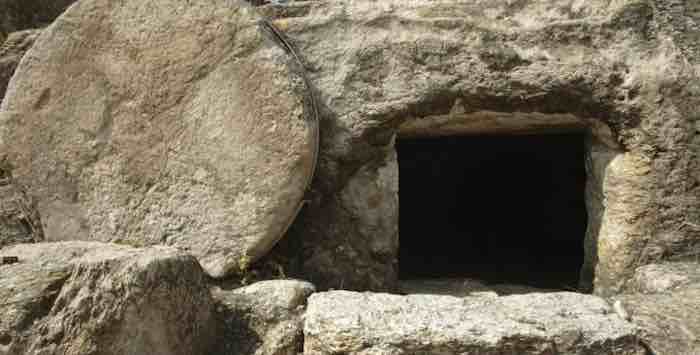By Dan Calabrese ——Bio and Archives--April 1, 2018
Lifestyles | CFP Comments | Reader Friendly | Subscribe | Email Us
 Every Easter Sunday you see a lot of “He Is Risen!” all across the Internet, and you’d almost think people have the idea that it happens once a year – like the groundhog seeing his shadow (or not, I guess).
I could be inferring a meaning people don’t intend, and I’m sure almost no one intends it seriously, but one of the most crucial things to understand about the resurrection of Jesus Christ is that it only happened once because it only needed to happen once, as distinct from the sin offerings God demanded of the Israelite priests prior to the coming of Christ.
Every Easter Sunday you see a lot of “He Is Risen!” all across the Internet, and you’d almost think people have the idea that it happens once a year – like the groundhog seeing his shadow (or not, I guess).
I could be inferring a meaning people don’t intend, and I’m sure almost no one intends it seriously, but one of the most crucial things to understand about the resurrection of Jesus Christ is that it only happened once because it only needed to happen once, as distinct from the sin offerings God demanded of the Israelite priests prior to the coming of Christ.Then I saw “a new heaven and a new earth.” For the first heaven and the first earth had passed away, and there was no more sea. 2 I, John, saw the Holy City, the New Jerusalem, coming down out of heaven from God, prepared as a bride adorned for her husband. 3 And I heard a loud voice from heaven, saying, “Look! The tabernacle of God is with men, and He will dwell with them. They shall be His people, and God Himself will be with them and be their God. 4 ‘God shall wipe away all tears from their eyes. There shall be no more death.’ Neither shall there be any more sorrow nor crying nor pain, for the former things have passed away.”
Support Canada Free Press

5 He who was seated on the throne said, “Look! I am making all things new.” Then He said to me, “Write, for these words are faithful and true.”A new Heaven and a new Earth. All things made new. No more death. No more sorrow. No more pain. The former things have passed away. Anyone interested in signing up for that? Yeah. Me too. So what’s the distinction between the new Heaven and Earth, and the old Heaven and Earth? One thing. The complete absence of sin from the new. The former things – those things stained with sin – will have passed away. They will be thrown in the fire. Destroyed. No more. Remember, Adam and Eve were cast out of the garden because their sin made it impossible for them to abide in the presence of God. But God put in place a sequence of events to restore His people to Him, so that the world could finally and forever be as He intended it in the beginning, with Him dwelling with us and being our God. How do you get rid of sin? By a cleansing and refining that can only come by fire. But before the fire, Jesus Christ offers us grace such that we can have our sin taken away, and can stand in the presence of God and live, eternally, not needing to be thrown into the fire because our sin has already been removed by His grace, made possible by His sacrifice. When He walked out of that tomb, He became the firstborn from among the dead. Death could not hold Him because His sinlessness did not permit death to have authority over Him. Quite the contrary, He had now gained authority over both sin and death, and all who willingly come under His authority will likewise not be subject to sin or death, but will have eternal life. That’s why it matters – to you, to me and to everyone – that He is risen, one time, for all time. Glory be to the Lord Jesus Christ. Happy Easter!
View Comments
Dan Calabrese’s column is distributed by HermanCain.com, which can be found at HermanCain
Follow all of Dan’s work, including his series of Christian spiritual warfare novels, by liking his page on Facebook.